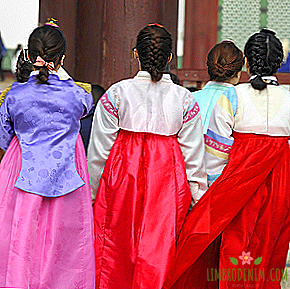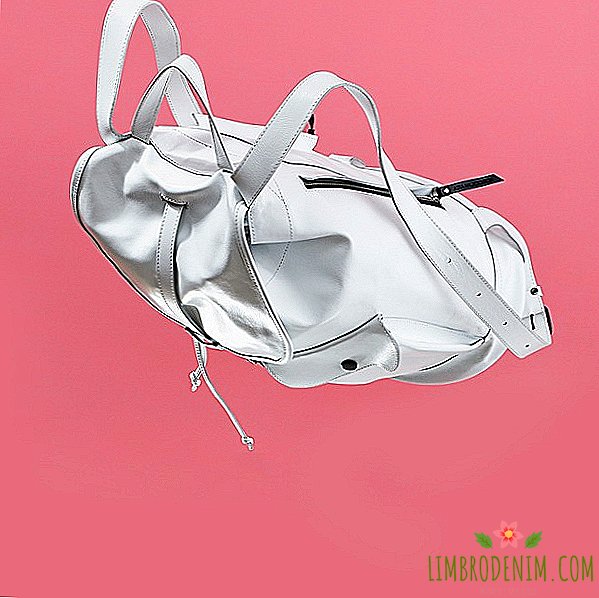Athletes we love for this Olympics

Alexandra Savina
There was nothing left before the end of the Olympic Games in Rio: over the weekend several more sets of awards will be played out, but the closing ceremony will take place on Sunday. All these days the Olympics remained one of the main topics for discussion, but we remembered some events and heroes more than others. We talk about sportswomen whom we managed to love after the Olympic Games in Rio.
Yana Egoryan

At the Olympics in Rio, Russian athletes achieved great success: at least remember the gold of Alia Mustafina, Natalia Ischenko and Svetlana Romashina, Elena Vesnina and Ekaterina Makarova. But a real discovery for the general public was the performance of Russian fencers: the final competition was Russian saber leaf, then they took gold medals in team competitions, and in total the Russian fencing team received seven awards (four of them gold).
The final competition of the sablistok turned out to be dramatic: the seven-time world champion Sophia the Great was considered the main contender for the gold medal, but Yana Egoryan, for whom the Rio Olympiad was the first, was unexpectedly able to beat everyone. In the photos and videos of the finale, we see how Yegoryan, weeping with happiness, embraces the Great One and seems to be asking for forgiveness for her victory. Sophia accepted defeat with dignity and was glad for her teammate.
Simone Biles

Despite the success of Russian women Alia Mustafina, the American Simona Biles, who won four gold and one bronze medal in Rio, became an objective leader in artistic gymnastics competitions. Biles is known for the complexity of the program and the almost flawless performance of all its elements. In addition to her achievements, Simone Biles stands out for her attitude to what is happening: for gymnastics she is extremely concentrated, but during breaks she often laughs with other team members and waves to the audience as if nothing special is happening.
The 19-year-old athlete has a difficult family history: when the girl was three years old, her and her younger sister Adria were adopted by her grandparents Ron and Nellie Biles, since their biological mother Shannon Biles suffered from drug addiction and could not educate them properly. At the same time, Simone herself says that she never felt special because she was adopted. “When I was younger, I thought that all children were adopted,” she says. “I didn’t understand why people attach such importance to it. For me, it was absolutely normal.”
Yusra Mardini

The swimmer Yusra Mardini was unable to achieve serious results at the Olympics, but her story is not remarkable for this. Mardini - a member of the refugee team, this year for the first time participating in the Olympics. Last summer, Yusra together with her sister Sarah went from her native Damascus to Beirut, then to Istanbul and Izmir: from there they, together with other refugees, were going to take a boat to Greece by sea. Half an hour later, the motor of the boat, in which there were twenty people instead of the put six, stopped, and it almost turned over. Yusre, Sarah and another woman - the only passengers of the boat who could swim - had to swim and pull the boat to the shore.
Now the athlete lives in Germany and says that she understands that she represents not only her national team, but also all the world’s refugees at the competitions: “We are a great friend of the team - we speak different languages, we are from different countries, but the Olympic flag united us all and we represent 60 million [refugees] from around the world. "
Nikki Hamblin and Abby D'Agostino

One of the most touching and humane stories of this Olympiad happened to the New Zealander Nikki Hamblin and the American Abby D'Agostino. Athletes took part in the race for 5000 meters, but for four laps before the finish Hamblin stumbled and fell, which is why D'Agostino fell after her. Rising, D'Agostino helped Hamblin stand up, and both continued to run, although the American was limping and running was hard for her. The athletes finished last, and after the finish touchingly embraced. And although both athletes did not pass on the results of the qualifying race to the final, they were allowed to take part in it after protests from their teams. The final of the race should take place today.
“When I remember Rio, I won’t think about what I finished, I won’t remember my time ... But I will always remember this moment,” Nikki Hamblin told the interview later in an interview. “I think we should not forget that sometimes a good person is more important. If I didn’t wait for her or try to help her, I’d come running ten to fifteen seconds faster — what does it matter? "
Teresa Almeida

Theresa Almeida, nicknamed Ba - Angola's goalkeeper in handball and the most famous member of the Angolan team. Because of the excellent game Almeida especially loved the Brazilian audience: every time she managed to save the gate, the stands were greeted with stormy ovations, and then they chanted that she was “better than Neymar.” And although the Angolan national team dropped out of the competition on August 16, after the match with Russia, everyone remembered her performance.
Almeida also believes that you should not rely on the accepted standards of beauty in society. “I’m happy with my weight, and people like me should also be proud of myself,” Teresa says. “Yes, it’s probably harder for me to run a hundred meters, but there are many other things I can do at a high level, including In sports".
Fu Yuanhui

The swimmer from China, Fu Yuanhui, became famous after the Internet circled the video, where she is glad that she sailed a hundred meters in the semifinals, not for 59 seconds, as she thought, but for 58.95. The athlete managed to win a bronze medal, but she won the audience not only with this: Fu Yuanhui spoke openly about the topic of menstruation, which in the sports and near-sports environment is still taboo. After the 4 × 100 meter relay, in which her team took fourth place, the swimmer looked like she was in great pain, and in an interview she said that she was not performing very well and let the team down. When asked if she had a stomach ache, the athlete said that her menstruation had begun the day before: "Yesterday my menstruation started, so I feel particularly tired - but this is not an excuse, I still didn’t swim well enough."
In social networks, Chinese fans praised Fu Yuanhui for speaking on a topic that is still not openly discussed: many people in the country do not even know that athletes can perform during menstruation and that a woman with menstruation swims in a pool does not carry any threat to others. In addition, in the country it is practically not accepted to use tampons, and the first Chinese brand of tampons should go on sale only this month.
Michelle Carter

Athlete Michelle Carter won the gold medal in shot put - Americans have not received Olympic awards in this sport since 1960. Michelle is the daughter of Michael Carter, a former athlete (who earned Olympic silver in the shot put earned at the 1984 games) and a professional American football player. When Michelle decided to engage in a shot put, she had no idea about her father’s successes. “When I was growing up, he was already playing football, and I only knew about it,” she says. “So he asked me a few questions and said,“ Well, since this is what you want to do, I will teach you, and I'll make sure you do everything right. "You know the rest." Michael continues to train his daughter now.
Michelle wants more girls and women to push the nucleus, which is considered to be a "unfeminine" sport, and believes that its success helps to popularize it. She also advocates a variety of beauty: “I’ve been saying all the time that if I had the same shape as Gabby Douglas, I wouldn’t be able to push the core the way I push it. And if Gabby Douglas had my figure , she would not be able to rotate in the air like that. So you need to understand that different bodies are meant for different things. "
Photo: Getty Images (3), Wikimedia Commons (1, 2, 3), Yusra Mardini / Facebook




